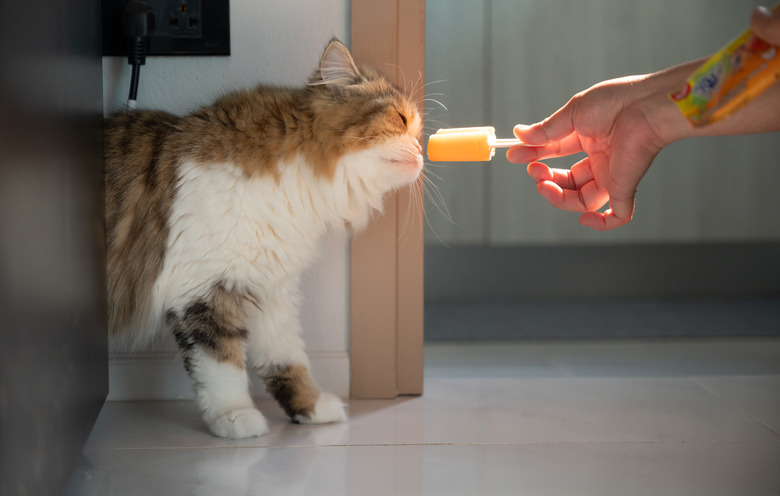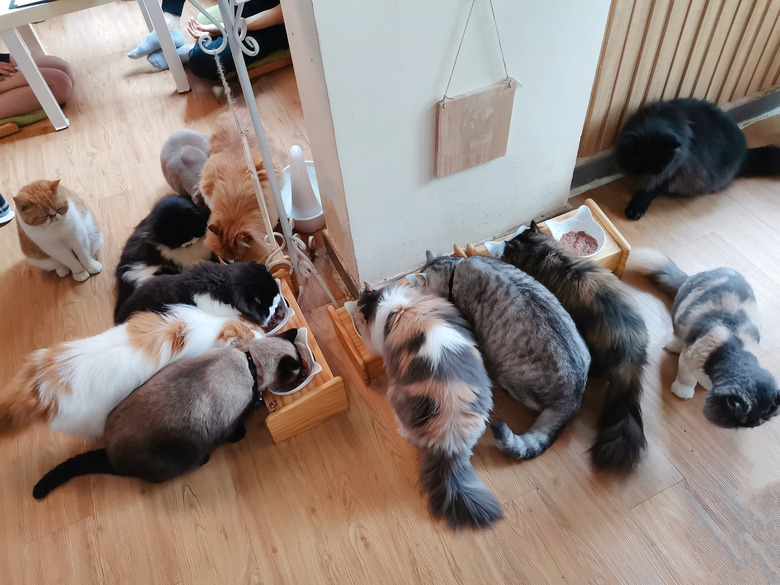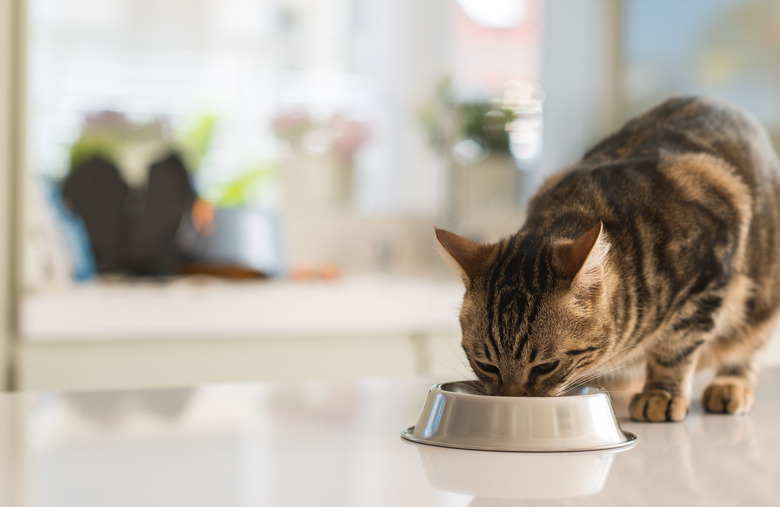What Makes A Cat Stop Eating?
If your cat stops eating, it's cause for concern because anorexic cats can quickly develop a dangerous condition called hepatic lipidosis. There are many reasons your cat may stop eating, including illness, gastrointestinal upset, stress, and dental issues. Figuring out the underlying cause is vital to getting your cat to start eating again. Taking your cat to your veterinarian is an important step in finding out what is causing your cat's anorexia.
Gastrointestinal issues may be the cause
Gastrointestinal issues may be the cause
One reason a cat doesn't want to eat is because he is experiencing gastrointestinal issues. If your cat is experiencing gastrointestinal upset, he will usually but not always show other signs of stomach upset, such as vomiting, diarrhea, and constipation. Several conditions can lead to stomach upset in cats, including parasites; a urinary obstruction; a foreign object in the cat's digestive system, such as floss, yarn, or string; a change in intestinal bacteria; and gastroenteritis.
Dental issues can cause cat anorexia
Dental issues can cause cat anorexia
Another possible reason for cat anorexia is dental issues. If your cat is experiencing mouth pain, she may not want to eat. In addition to a refusal to eat, a cat who is experiencing a dental issue may have other symptoms, such as chewing slower than usual, eating on one side of the mouth, drooling excessively, new or worsening resistance to having her head or mouth touched, and pawing at the mouth. Some causes of dental pain in cats include resorptive lesions, periodontal (dental) disease, stomatitis, mouth or head trauma, and oral cancer.
An underlying illness can cause a lack of appetite
An underlying illness can cause a lack of appetite
Illness is a common reason for a cat to stop eating. A number of diseases can cause a cat to feel nauseous or to lose his appetite. Diabetes; hyperthyroidism; pancreatitis; pain anywhere in the body, such as that caused by arthritis; cancer; and respiratory infections can all lead to nausea or a lack of appetite in cats. Other signs of nausea in cats include vomiting, dry heaving, and dehydration.
In older cats, kidney disease is a common cause of anorexia. Kidney disease causes nausea, making a cat not want to eat. Cats with kidney disease often drink and urinate more often as well. Chronic kidney disease can be managed medically. It's important to get a diagnosis from your vet as soon as you can to begin treating the disease if your cat has it.
Psychological reasons for cat anorexia
Psychological reasons for cat anorexia
An anorexic cat may not be eating because she's feeling stressed or anxious. Numerous things can cause a cat to feel stressed. Moving to a new home, the addition of a new pet or family member, the loss of a pet or family member, home renovation projects, and changes to a cat's routine are examples of situations that can cause a cat stress.
A cat may also refuse to eat if she feels unsafe at mealtime. If a cat's food is placed near something that scares her or too close to her litter box, she may not eat. Placing the food bowl so that your cat has to face the wall to eat may also make her feel unsafe. Try placing your cat's food bowl in such a way that she can face the room while she eats if she wants to.
If you live in a multicat household, monitor mealtime. If intimidation is taking place, your cat may feel too afraid to eat. Try separating your cats at mealtime if bullying or intimidation is taking place.
When to take your cat to the vet
When to take your cat to the vet
If your cat refuses to eat for 24 hours, it's time to take him to the vet. Hepatic lipidosis is a dangerous condition that can develop quickly in an anorexic cat. Your vet will do a physical exam and review your cat's medical history to try to determine the underlying cause of your cat's anorexia. Your vet may need to order diagnostic tests, such as blood tests and X-rays to help determine what's causing the problem. Treatment for your cat's lack of appetite will depend on the cause.
References
- Memphis Veterinary Specialists & Emergency: My Cat Won't Eat – Is This an Emergency?
- VCA Animal Hospitals: Dental Pain in Cats
- VCA Animal Hospitals: Anorexia in Cats
- PetPlace: Symptoms and Causes of Cat Nausea
- Reed Animal Hospital: What Are Some Causes of Appetite Changes in Cats?
- Newsweek: Cat Not Eating?: 9 Reasons Why and How to Help
- Cherished Companions Animal Clinic: My Cat Isn't Eating as Much as Usual: What's Going On?


